
UK: The recommendations of the Rail & Urban Transport Review commissioned by the Labour Party while in opposition were announced at Bradford City Hall on August 21. Attendees included the authors and policymakers including Transport Secretary Louise Haigh.
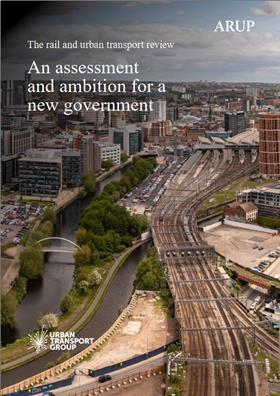
The review, entitled An Assessment & Ambition for a New Government, was led by Jürgen Maier, Chair of the Digital Catapult, Vice-Chair of the Northern Powerhouse Partnership and a former Siemens UK CEO. Among the rail specialists on the panel were Arup’s Global Rail Lead TC Chew, former HS2 Ltd Chairman Allan Cook and former Siemens Mobility UK Chief Executive Will Wilson. The report was delivered with secretariat support from the Urban Transport Group and technical advice from Arup.
Scope
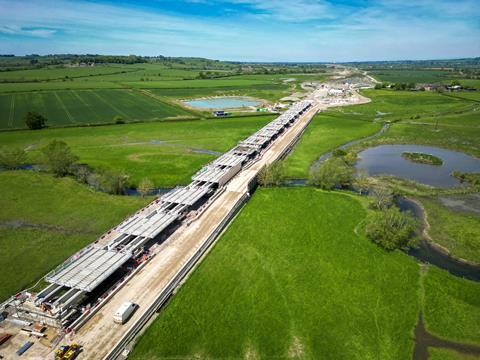
The review was asked to make recommendations to the Labour Party leadership on how the delivery of rail infrastructure could be managed ‘better, faster and more cost effectively’.
Its brief covered:
- changes to the planning system;
- hurdles in planning, legislation or policy that hinder infrastructure delivery and different consenting strategies;
- clarity and certainty of policy and the reliability and consistency of funding and the infrastructure pipeline;
- the capacity of public bodies to effectively partner, procure and deliver infrastructure and provide value for money, learning from international examples;
- how to aid more efficient and resilient local supply chains;
- the role of devolution and the benefits of developing sustainable partnerships;
- opportunities to unlock growth around major projects;
- alternative models to fund stations including the use of development corporations, leveraging investment and co-location of other infrastructure.
Speaking on the report’s release, Maier said he hoped its publication would mark ‘a pivotal moment’ for the UK’s transport sector.
‘We have a unique opportunity to reshape our transport infrastructure to be greener, more inclusive and future-ready’, he said. ‘Our recommendations provide a clear roadmap for the new government to seize this moment and drive significant economic, social and environmental benefits. We must set the UK on a new course.’
Double rail’s modal share
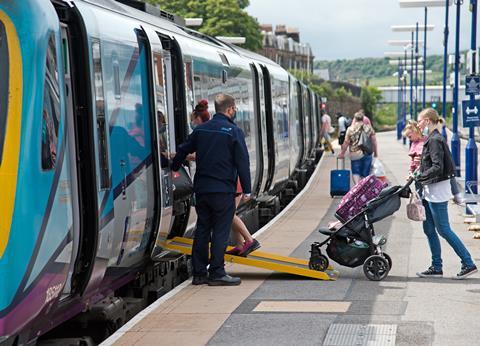
In its recommendations, the panel calls on policymakers to:
- establish an ambitious transport infrastructure plan to ensure a greener, more inclusive and efficient UK transport network. This should start with the creation of a Transport Strategy for England, encompassing skills, land use and housing objectives to align with regional and local strategies;
- implement a transformative framework to reduce project delivery costs by 20% and timelines by 25%;
- develop an infrastructure investment playbook to facilitate private-sector funding contributions;
- ensure the voices of transport users and the workforce are central to future transport plans, driving social inclusion and local growth.
The review’s authors have condensed their findings into five core themes which augment the policy recommendations.
Among these five areas is a call for an ambitious national transport strategy to increase journeys by public transport, walking and cycling by 2035, and to double the mode share of rail within a decade.
The panel has proposed a ‘Greener, Faster, Cheaper’ framework with the aim of reducing project delivery costs by 20% and timelines by 25%. It also strongly advocates a return to Public-Private Partnership models to fund major projects; this should be supported by Treasury officials as part of work to develop a new approach to private finance.
Opportune moment
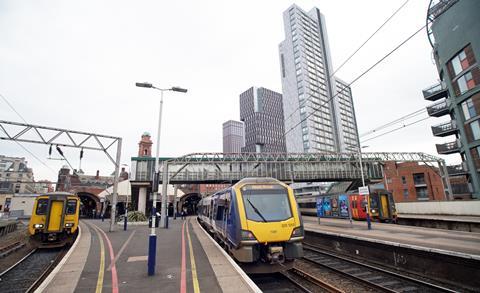
The report says that ‘poor connectivity within city regions is mirrored by the lack of scale across the north and Midlands, with labour markets too small to create a proper counterweight for London. The UK, once a pioneer of economic growth, now finds itself trailing behind. We must address this urgent need for our cities and regions to thrive.’
It adds that the report has been issued ‘at an opportune moment. Following the general election, we have an opportunity for a major reset, which as rail and urban transport in the UK stands at a tipping point is precisely what is needed. And with the 200th anniversary of the railway next year, there is no better time to boost our rail and urban transport networks and set a clear and meaningful path towards inclusive economic growth and decarbonisation.’
Investor certainty
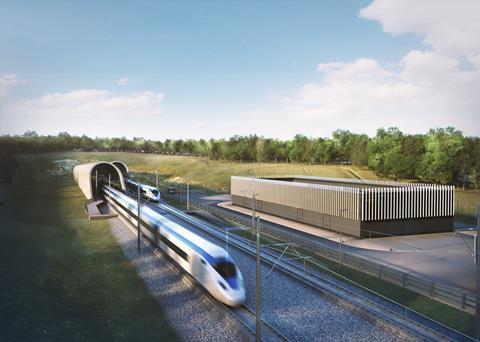
Restoring investors’ faith in the UK’s ability to plan and deliver long-term rail schemes is a recurring theme.
‘Rail and urban transport projects take many years to develop and deliver, and major projects such as the Elizabeth Line or High Speed 2 will span several political administrations. The rail industry needs longer-term certainty; there are many international opportunities for investors and contractors, and they will tend to focus on those where a consistent policy and funding framework provides them with less risk’, the report warns.
Faster, cheaper
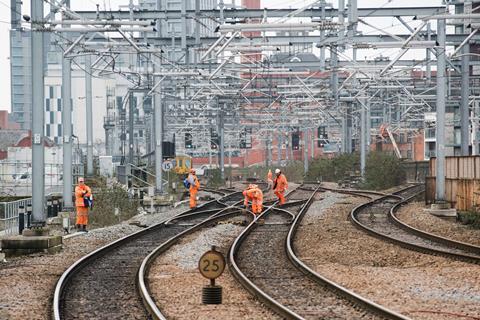
The report points to research by Arup which has found that ‘the most opportunity for acceleration, cost reduction and improved outcomes was identified during the first 10% of a project’s life-cycle. Ensuring the initial stages of project planning are robust and innovative, sets the foundation for success. Defining and driving programmes based on operational outcomes, not just the asset, leads to greater buy-in and support’, the report says.
The authors’ ‘Greener, Faster, Cheaper’ framework is intended to ‘address the perennial challenge of infrastructure projects being delayed and over budget, while also ensuring priorities on net zero and sustainability are achieved’. A holistic, end-to-end approach to infrastructure development should be introduced, the report adds, while ‘recognising that there is no “silver bullet” solution to speed up delivery’.
The framework emphasises ‘early planning, outcome-based programmes and strategic reforms, contrasting with traditional asset-focused, process-driven approaches. Lessons learned from slower and delayed projects will inform it, ensuring past mistakes are not repeated.’
Case studies
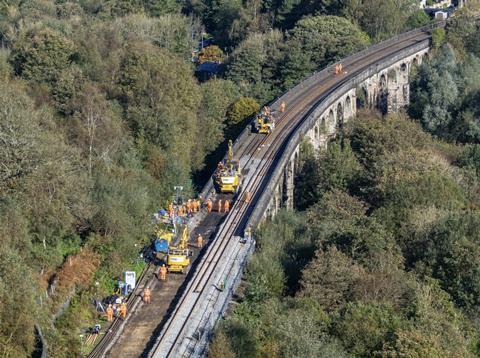
While the report identifies many structural challenges facing rail and infrastructure projects, it does not overtly specify how the target of doubling rail’s modal share could be achieved.
A number of case studies are included to illustrate the thematic points the panel is seeking to make. Among them is Siemens Mobility’s recent discontinuous electrification proposal; the Midlands Rail Hub plan to boost rail capacity around Birmingham; and the Queensferry Crossing road bridge scheme in Scotland, which was completed in 2018. The authors highlight this as being one of the most successful major infrastructure projects to have been taken through the legislative planning process as a hybrid bill.
The long-planned Northern Powerhouse Rail programme is also cited. The report notes acerbically that there has been a ‘consistent consensus among northern civic and business leaders for a new line from Bradford to Huddersfield and from West Yorkshire to Warrington via Manchester and Manchester Airport. This credible network does not need reviews or further optioneering, with the Integrated Rail Plan and Network North replacement of previous cuts to Northern Powerhouse Rail all having wasted time and effort, as well as significant sums in additional development cost.’
Responses
Responding to the report, Haigh said ‘this independent expert-led review provides a comprehensive assessment of the challenges and opportunities we face in delivering transport infrastructure in Britain and will help inform this new government’s thinking. We are clear that we will deliver value for the taxpayer while turbocharging delivery of transport projects.’
Arup’s TC Chew, one of the authors, added that ‘the conclusion of this review provides an opportunity to showcase the importance of public private collaboration in accelerating the delivery of improved connectivity and growth. Transformative approaches such as ‘Greener, Faster, Cheaper’ will ensure infrastructure projects are delivered on time and within budget, while also enabling a greener and more prosperous UK.’
Jason Prince, Director of the Urban Transport Group, added that ‘good urban transport plays a vital part in creating a stronger, greener, and fairer economy. This review — which received more than 100 evidence submissions — and its final recommendations, are testament to the collective will and ambition of the sector to deliver better transport services for passengers on our railways and in our urban areas.’
Supporting documents
Click link to download and view these filesAn Assessment & Ambition for a New Government (PDF)
PDF, Size 7.21 mb



